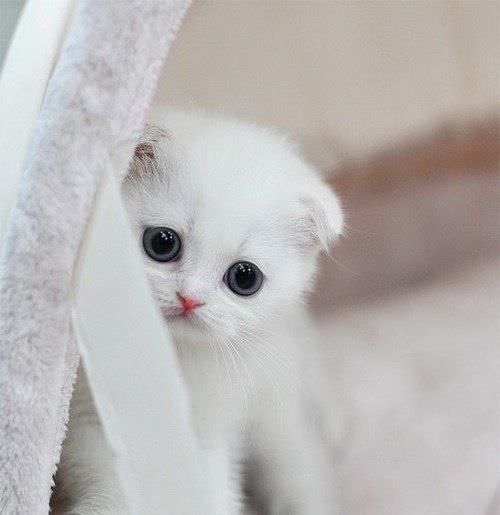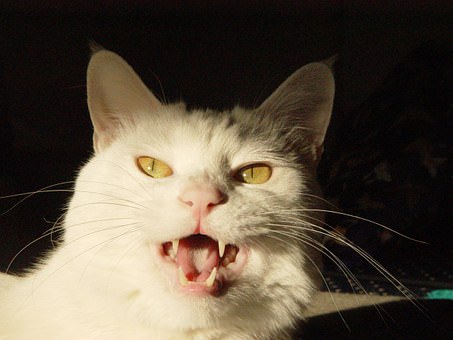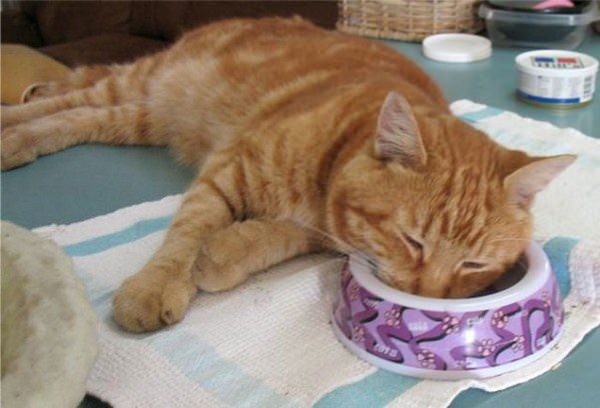Our cats live with us and make us smile. We want to do the best we can for them, but since they don’t exactly speak the same language we do, sometimes it is hard to tell if they are truly happy. Here are some tips to help you “speak cat” and check the mental health of a cat in your life.
1. Cats that do nothing but lie around.
Seems normal, right? Well, not exactly. Cats in a home can be bored. If all your cat does is lie around, he might be under-stimulated. You might think that he is just lazy, but if you could ask him, he might explain that he has given up and just accepted his boredom. Bored cats are inactive and can become obese. They are at risk for diseases like diabetes and joint issues. Make sure that your cat is active and entertained. Of course they’ll slow down as they age, but you should always notify your vet if you notice sudden or drastic changes in behavior.

2. ‘Fraidy Cat?
Some cats are at a greater risk for anxiety. Such cats tend to perceive things in the environment as threatening. These are the cats that hide when strangers are around or urinate outside the box when they see unfamiliar cats outside. If you have an anxious cat, it is kind to cover windows where strange cats lurk and provide a safe place for your cat to retreat when there is commotion. It is not fun to live in fear and the anxiety is very real to an anxious cat.
3. For Crying Out Loud!
If your cat cries for food constantly, she might actually be seeking attention. People joke about cats crying for food even when the bowl still has some food in it. We laugh that the cats may want better food, but what she really may want is YOU. Instead of feeding her, try stroking or petting her, or just interacting. You are your cat’s main squeeze and she needs time from you to stay content.
4. Covering the Basics.
Happy cats eat, drink, sleep, and play. There will be some individual variations, but contented and healthy cats meet their own simple needs. If your cat is not eating, he may be telling you that he is not pleased with the diet choice. Cats have evolved to seek variety in their diets to give them a better chance to meet their specific nutritional requirements. Of course, a cat that has changes in appetite should always be evaluated by a veterinarian in case the change is due to a medical condition.
5. Tune In – Silence Speaks.
Your cat’s body is actually telling you things if you watch and learn. If your cat thrashes her tail and lays back her ears, she is not comfortable and relaxed. These gestures can be signs of playful combat, but the cat should relax after playing. If you notice that your cat seems tense and on edge more than occasionally, it might be worth an assessment of your environment through your cat’s eyes. Make sure all four-legged residents are able to access needed resources and that peace prevails in your home.
Remember, healthy cats are happy cats, so don’t forget that all cats need to be examined by a veterinarian at least once yearly. Their preventive care should be tailored to their individual needs and lifestyle. There is no age or situation in which a cat does not need preventive care, no matter what you have heard.


